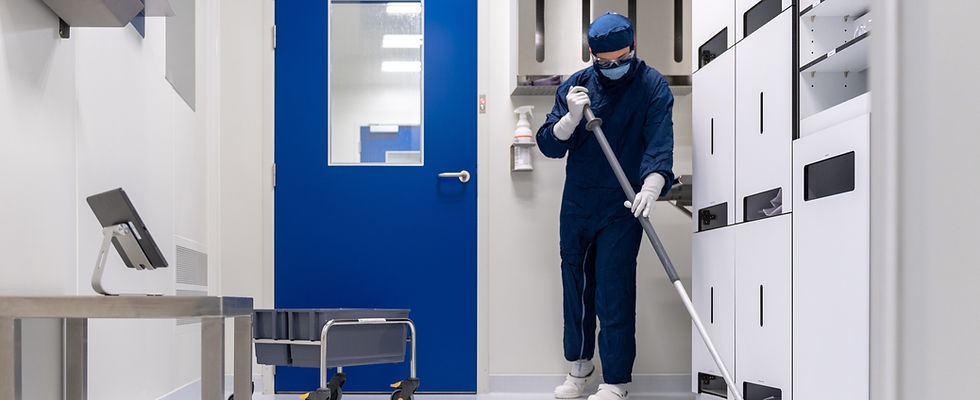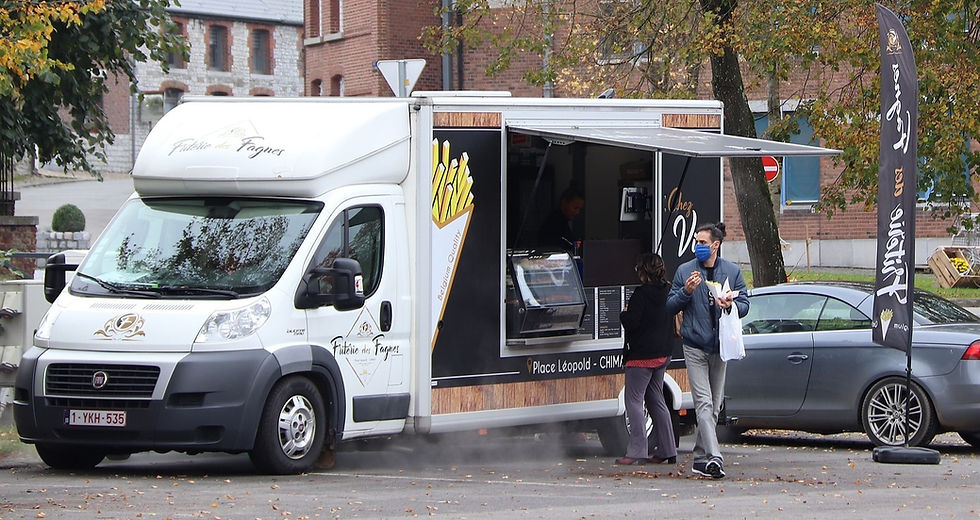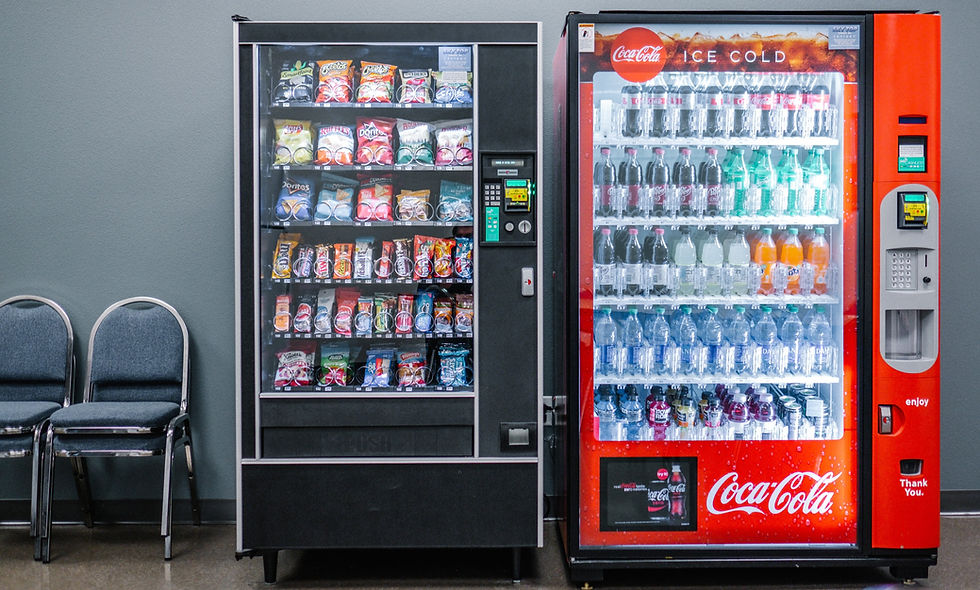What Profitable Business Can you Start With $20k?
- Nathanael Zibaki

- Feb 17, 2023
- 12 min read

With $20,000, we have a solid foundation to start our entrepreneurial journey. There are numerous profitable business ideas that we could explore, depending on our skills, interests, and available resources. With great planning and execution, we can turn our investment into a thriving business that generates a lot of money or income.
The following are 10 business ideas we can start with 20 000$ or less:
1. Bicycle Repair

The bicycle repair business involves repairing and maintaining bicycles for customers who may not have the skills or tools to do it themselves. We can also sell bicycles and bicycle parts. Here's how a bicycle repair business typically works:
Setting up shop: You will need to find a good location to set up your bicycle repair business. You will need to ensure that the location is accessible and convenient for customers to drop off and pick up their bicycles.
Acquiring tools and supplies: Since we have a location, we will need to invest in the necessary tools and supplies to repair bicycles, including wrenches, screwdrivers, tire levers, chain breakers, and cleaning products. You may also need to stock up on replacement parts, such as brake pads, inner tubes, and cables.
Marketing and advertising: Since we have a location, tools, and our inventory of products(bicycles, bicycles, parts) to start our business with, we will need to let people know about the service that we are offering. We need to promote your business to attract customers. We can create flyers and business cards, advertise in local publications or online (Facebook ads, google ads), and establish a social media presence. You can also offer discounts or promotions to attract new customers.
Providing services: Once we have customers, we will need to provide high-quality repair services to keep them coming back. We should offer a range of services, such as basic tune-ups, brake adjustments, and flat tire repairs, as well as more advanced repairs like wheel truing and drivetrain maintenance. We should also strive to provide excellent customer service, including clear communication, prompt service, and fair pricing. To make our service even better, and more reliable we can create our online store, so customers can order some items online to be delivered to their houses.
Managing your business: As our business grows, we will need to manage our operations, including scheduling appointments, ordering supplies, and managing our finances. We may also need to hire additional staff to help with repairs and customer service.
In Brief, a bicycle repair business can be a profitable and fulfilling venture for those who enjoy working with their hands and have a passion for cycling. With the right tools, skills, and marketing strategies, we can build a successful business that provides a valuable service to your community.
2. Drone Video

A drone video business involves using drones to capture aerial footage for a variety of clients. These clients can include real estate agents, film and television producers, construction companies, event organizers, and more.
The process of starting a drone video business typically involves obtaining a drone pilot license, investing in high-quality drone equipment, and building a portfolio of work that showcases the quality of our aerial footage. We will also need to market our services to potential clients and develop relationships with them.
When working with clients, we will need to understand their specific needs and do our services accordingly. For example, a real estate agent may need high-quality images and videos of a property to use in marketing materials, while a construction company may require aerial surveys to monitor the progress of a project.
Once we have completed a project, you will typically edit the footage and provide a final product to the client in a suitable format, such as a video file.
We can charge clients based on a variety of factors, including the complexity of the project, the amount of time required, and the equipment and resources needed.
The success of a drone video business depends on our ability to provide high-quality footage that meets the needs of our clients, as well as your ability to market our services and build a strong reputation within our industry.
3. Home Cleaning Service

Home cleaning service: If we enjoy cleaning and have good organizational skills, starting a home cleaning service might be a good option. We can start providing professional cleaning services to clients who require assistance with cleaning and organizing their homes. We need basic cleaning supplies and equipment and offer services like regular cleaning, deep cleaning, or move-in/move-out cleaning. We can promote our services on social media and gradually expand our business as you gain more clients.
Here are some important parts of the business:
Marketing: For people to know about the services that we are offering, we should reach out to them. We can use different types of marketing skills to reach out to potential customers, such as online advertising, social media marketing, and word-of-mouth referrals.
Scheduling and booking: We should have a least a website where customers can book us for service. Once a customer expresses interest in the service, they will typically schedule a cleaning appointment with the business. This may involve discussing their cleaning needs, preferred date and time, and any special requests.
Cleaning: On the scheduled date, the cleaning team or ourselves will arrive at the customer's home and perform the agreed-upon cleaning services, which may include dusting, vacuuming, mopping, and cleaning bathrooms and kitchens.
Quality control and follow-up: After the cleaning is complete, the business may perform a quality control check to ensure that the work meets the standards. The business may also follow up with the customer to ensure their satisfaction and address any concerns or feedback.
Billing and payment: The business will typically invoice the customer for the services provided and receive payment via a variety of methods, such as cash, credit card, or online payment on the business website.
Customer relationship management: A cleaning service business may establish an ongoing relationship with its customers by scheduling regular cleaning appointments, providing additional services, and offering customer loyalty programs to encourage repeat business.
In conclusion, a successful home cleaning service business requires a strong marketing and customer service strategy, attention to detail, and a commitment to quality work.
4. Car Wash

A car wash business involves providing cleaning services for cars and other vehicles. This can include basic services like washing the exterior of the vehicle, cleaning the windows, vacuuming the interior, and more.
To start a car wash business, we will need to find a suitable location, such as a high-traffic area near a gas station or shopping center. We will also need to purchase equipment, such as pressure washers, vacuums, and cleaning supplies. Additionally, We might consider hiring staff and developing a marketing plan to attract customers if we are not able to do everything by ourselves.
Here are some tips for running a successful car wash business including providing high-quality services at competitive prices, offering promotions and discounts to attract new customers, and ensuring that our facilities are clean and well-maintained.
5. Digital Marketing Agency

If we have a good experience in digital marketing or graphic design, we can start a digital marketing agency. A digital marketing agency is a business that provides a variety of online marketing services to clients, such as search engine optimization (SEO), pay-per-click (PPC) advertising, social media management, email marketing, content marketing, and website design and development. The best thing about it is that we can work from home and start by networking with local businesses or We can create a website and promote our services on social media.
Here are some key steps in how a digital marketing agency business works:
Market Research: We need to figure out the type of clients we want to work with and what can we do to better help them to grow their online presence or business. We need to conduct market research to identify our client's specific needs and the problems they're facing. Once we have a good understanding of the market, we can choose what type of service we can offer them to meet their needs, and resolve their problems.
Create a business plan: We should create a business plan that outlines our mission, goals, services, pricing, and marketing strategy. We have to determine how we will differentiate ourselves from other digital marketing agencies.
Build a team: We can do it ourselves or build a team of skilled professionals with expertise in areas such as web design, SEO, content creation, and social media marketing. A team will be a great option as it will help us to have a faster result, and make our service more reliable.
Create a portfolio: A portfolio is a great option that will help new customers to see our work to showcase our expertise and track record of success. We should use our portfolio to pitch potential clients and win new business.
Develop a marketing strategy: Nowadays marketing is key to succeed in any kind of business. We should use a variety of marketing tactics to promote our services, such as email marketing, social media advertising, content marketing, and attending industry events. We should consider partnering with complementary businesses or influencers to expand our reach.
Provide excellent service: Nothing is better than having happy customers for our business. We should deliver high-quality work and exceptional customer service to retain clients and earn referrals. We should also continually evaluate our services to ensure they are meeting the needs of our clients and providing value.
6. Food Truck

Food truck business: If we enjoy cooking or have a passion for food, starting a food truck business can be a good option. we can invest in a food truck, equipment, and supplies, and set up at local events or in high-traffic areas. We may need to obtain permits and licenses to operate, but the initial investment is lower than opening a restaurant.
Here are some general steps that a food truck business may follow:
Branding: This involves creating a unique brand and menu that will set the food truck apart from the others.
Licensing: Depending on the location, food trucks may require various permits, such as a business license, food handler's permit, and more.
Purchase or lease a food truck: The food truck should be equipped with all the necessary kitchen appliances and safety features, such as refrigerators, stoves, and fire suppression systems.
Determine the locations: The food truck may park in popular areas where people gather or at events such as concerts and festivals.
Set prices and marketing: The prices should be set to be competitive and reasonable, and marketing strategies should be put in place to attract more customers.
Manage the day-to-day operations: This involves preparing the food, managing inventory, handling cash, and ensuring the cleanliness and safety of the food truck.
In brief, a food truck business is often characterized by its flexibility and mobility and can be a fun and rewarding adventure for entrepreneurs who love food and enjoy being on the move.
7. Laundromat

What is a Laundromat: A Laundromat is a business where customers can wash and dry their clothes using coin-operated or card-operated machines. Laundromats provide commercial-grade washing machines and dryers of different sizes, allowing customers to choose the appropriate size for their laundry load. Laundromats usually have a seating area where customers can wait patiently for their clothes to be cleaned up by the machine.
Who uses laundromats: Laundromats are often used by people who do not have access to laundry facilities in their own homes or people who want better machines to wash their clothes properly. They may also be used by individuals who have a large load of laundry that cannot be easily washed at home, such as rugs, or sports equipment.
Here's how a Laundromat business works:
Find a Location: The first step in starting a Laundromat business is to find a suitable location that is easily accessible and has a high volume of pedestrians. Ideal locations include busy streets, near apartment complexes, college campuses, and densely populated areas.
Equipment: Once we have a location, we need to equip it with washing machines, dryers, tables, and chairs. The number of machines and their capacity will depend on the size of our Laundromat and the number of customers you expect to serve.
Payment systems: Most Laundromats operate on a coin-operated system or card-operated system where customers insert coins or cards into the machines to pay for their use.
Operations & Services: To run a successful Laundromat, we need to ensure that our machines are regularly serviced and maintained, the facility is clean and well-maintained, and our staff provides excellent customer service. To attract more customers, we can offer additional services such as drop-off and laundry pickup, dry cleaning, and more. We can also sell laundry supplies such as detergent, bleach, and more.
Marketing: Marketing is key to prosper in any kind of business. To promote our Laundromat, We can use various marketing strategies such as flyers, social media, ads in local newspapers, and by word-of-mouth. You can also offer discounts or loyalty programs to encourage customers to return.
8. Vending Machine

A vending machine business involves selling products, such as snacks, drinks, and other small items, through vending machines that are placed in high-traffic areas such as schools, offices, airports, and malls. Vending machines typically operate 24/7 and allow customers to purchase products by inserting cash or using a credit or debit card.
Starting a vending machine business involves selecting a suitable location, choosing the types of products to sell, purchasing vending machines, and managing inventory and restocking. The business can be operated on a full-time or part-time basis, and the income potential depends on the number of vending machines, the products sold, and the location.
Some vending machine businesses may also offer more specialized services such as coffee, fresh food, or even electronics. Additionally, modern vending machines are equipped with digital payment systems, touch screens, and internet connectivity to provide customers with more convenience and a better overall experience.
Here's how a vending machine business typically works:
Location: The first step in starting a vending machine business is to find a suitable location. Location is a crucial factor to succeed in vending machine business. We need to find high-traffic locations with a constant flow of potential customers, such as office buildings, schools, hospitals, airports, and shopping malls. We may need to negotiate with the location owners to place our vending machines on their premises.
Product selection: The second step in starting a vending machine business is to select the types of products you want to sell. The common products sold through vending machines include snacks, drinks, coffee, and sandwiches. We can also sell products like personal care items, and other small items.
Purchase of Vending machine: Once we have selected the products we want to sell, we need to purchase or lease vending machines. There are different types of vending machines, we may need to consider the size, capacity, and features of the vending machines that would best fit your product selection.
Payment systems: Most vending machines operate on a coin-operated or card-operated system, where customers insert coins or swipe their debit or credit cards to pay for their purchases.
Maintenance: To run a successful vending machine business, we need to ensure that our machines are regularly serviced and maintained. This includes restocking products, cleaning the machine, and repairing any technical issues.
In conclusion, a vending machine business can be profitable if managed effectively and located in high-traffic areas with a consistent demand for the products sold. The key to success is to keep our machines stocked with fresh and popular products, and provide excellent customer service to ensure repeat business.
9. Personal Trainer

If we are interested in helping people get in shape and live a healthy life, We should consider starting a personal training business. We can do this in-person or virtually.
A personal training business typically involves offering one-on-one fitness coaching services to clients who want to achieve specific health and fitness goals.
The following are some steps we may consider to succeed in the personal training business:
To start a personal training business, we will need to have a strong background in fitness or any sport that we are good at. We may need certifications and licenses to operate. We may also need to have insurance to protect ourselves and our clients in case of accidents or injuries.
Once we have established our business, we will need to market our services to attract clients. This could involve setting up a website, using social media to promote our business, and networking with other professionals in the fitness industry.
When working with clients, we will need to start with an initial consultation to assess their fitness level and discuss their goals. From there, we will create a customized fitness plan for them, which may include exercises, nutrition recommendations, and lifestyle changes.
During training sessions, we will work with our clients to ensure they are performing exercises correctly and safely, and we will adjust their plans as needed to help them progress toward their goals. We may also provide additional support and accountability outside of sessions, such as through email or text messages to check-in.
We can charge clients on an hourly basis, or offer packages with a set number of sessions. Some personal trainers also offer group fitness classes or online coaching services to supplement their one-on-one work.
In Brief, a personal training business is about helping clients achieve their fitness goals by providing customized coaching and support. With the right skills and dedication, it can be a rewarding and profitable business.
10. Barbe Shop

A barber shop business involves offering hair cutting, grooming, and other related services to men and boys.
The process of starting a barber shop business typically involves finding a good location, purchasing equipment, and hiring staff if needed. We may need to obtain the required licenses and permits from the local government. We need to develop a marketing plan to promote our business to potential clients.
When operating a barber shop, we will need to provide a range of services, such as haircuts, beard trimming, and grooming, as well as sell hair care products and accessories. we may also need to manage staff, book appointments, and maintain a clean and welcoming environment for your clients.
The success of a barber shop business depends on a variety of factors, such as the quality of our services, the reputation of our business, the level of customer service we provide, and the competitiveness of your pricing.
Building a loyal customer base is key, as many clients will return to our shop regularly if we provide good service.






Comments